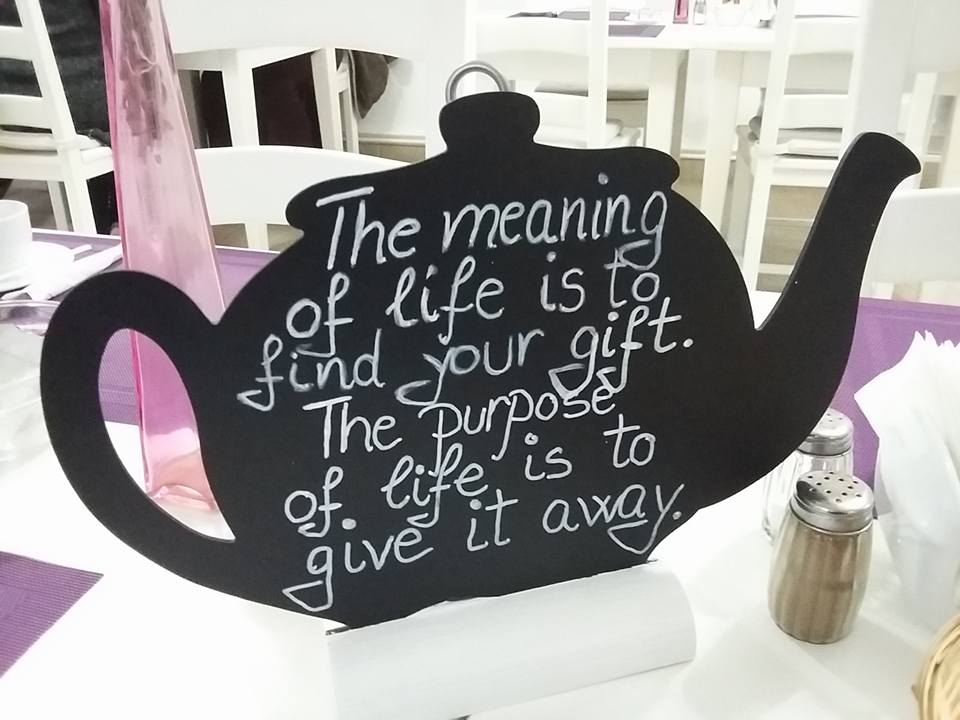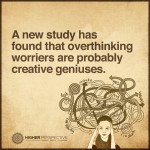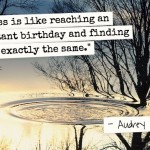Well, think again: it just might not be just one true calling, calling you out. 🙂
For sure we are living these times right now that are like no other times before! Our family wants the best for us and they advice us to follow so called stable&secure career paths. But we might not feel like following their ideas, but following our own! And the content of every job and profession has changed tremendously in only the last few decades, with several new hundreds of jobs adding up, that couldn’t have existed, say 50 years ago! There is no certainty on the work market nowadays. Actually, in no time in history there has been a labor market security, so security itself is a myth!
What are we left with then? I believe we are always left with ourselves. 🙂 What I mean is that no matter the changes in history (past, present or future) that show us that we are never in control, the only constant in life is us. Of course, I bet you agree that an individual goes through a tremendous amount of changes that shape her/him up throughout his lifetime, so what I mean by constant is that: you are always there for yourself! So, security is a myth, having control over life is another myth, but who you really are is a “constant” that is totally worth exploring! The definition of constant, according to the dictionary is this: unchanging in nature, value or extent. Here lay the clues of knowing who you are: know your (human) nature, know what your values are (they dictate your everyday decisions), and know your extent – as in know the impact you want to make in your life with the actions you take (and don’t worry, you can choose it to be larger than you. The bigger the better!!). And don’t worry, knowing who you are is a lifetime work, as each life experience makes us add new findings to ourselves.
Now, turning to one of the best philosopher in the world, ever, Mr. Nietzsche that is, here is what he has to say about the process of knowing yourself:
“No one can build you the bridge on which you, and only you, must cross the river of life. There may be countless trails and bridges and demigods who would gladly carry you across; but only at the price of pawning and forgoing yourself. There is one path in the world that none can walk but you. Where does it lead? Don’t ask, walk!” (from the essay Schopenhauer as Educator, part of Untimely Meditations)
In other words, take responsibility for your own life! No one else takes decisions instead of you and if you do let others take decisions for you, you and only you will have to face the consequences that come along!

Ultimately, Nietzsche was encouraging us to embrace difficulty (attention!! embrace it, don’t try to heal it or fix it!) because it is essential for a fulfilling life. Talking about constants, it was back in 1873, approaching his thirtieth birthday, when just as we are doing today, Nietzsche was reflecting upon how we find ourselves and how we bring forth our gifts:
“How can man know himself? It is a dark, mysterious business: if a hare has seven skins, a man may skin himself seventy times seven times without being able to say, “Now that is truly you; that is no longer your outside.” It is also an agonizing, hazardous undertaking thus to dig into oneself, to climb down toughly and directly into the tunnels of one’s being. How easy it is thereby to give oneself such injuries as no doctor can heal. Moreover, why should it even be necessary given that everything bears witness to our being — our friendships and animosities, our glances and handshakes, our memories and all that we forget, our books as well as our pens. For the most important inquiry, however, there is a method. Let the young soul survey its own life with a view of the following question: “What have you truly loved thus far? What has ever uplifted your soul, what has dominated and delighted it at the same time?” Assemble these revered objects in a row before you and perhaps they will reveal a law by their nature and their order: the fundamental law of your very self.” (from the essay Schopenhauer as Educator, part of Untimely Meditations)
If you didn’t have enough of my superfluous blog post, I invite you to take some time and listen to Alain de Botton’s Sunday Sermon, On Pessimism, at the School of Life. What does pessimism have to do with knowing ourselves, finding out true calling and sharing our gifts? A whole lot! And Alain comes up with all the academic background to support this! Enjoy! <3





